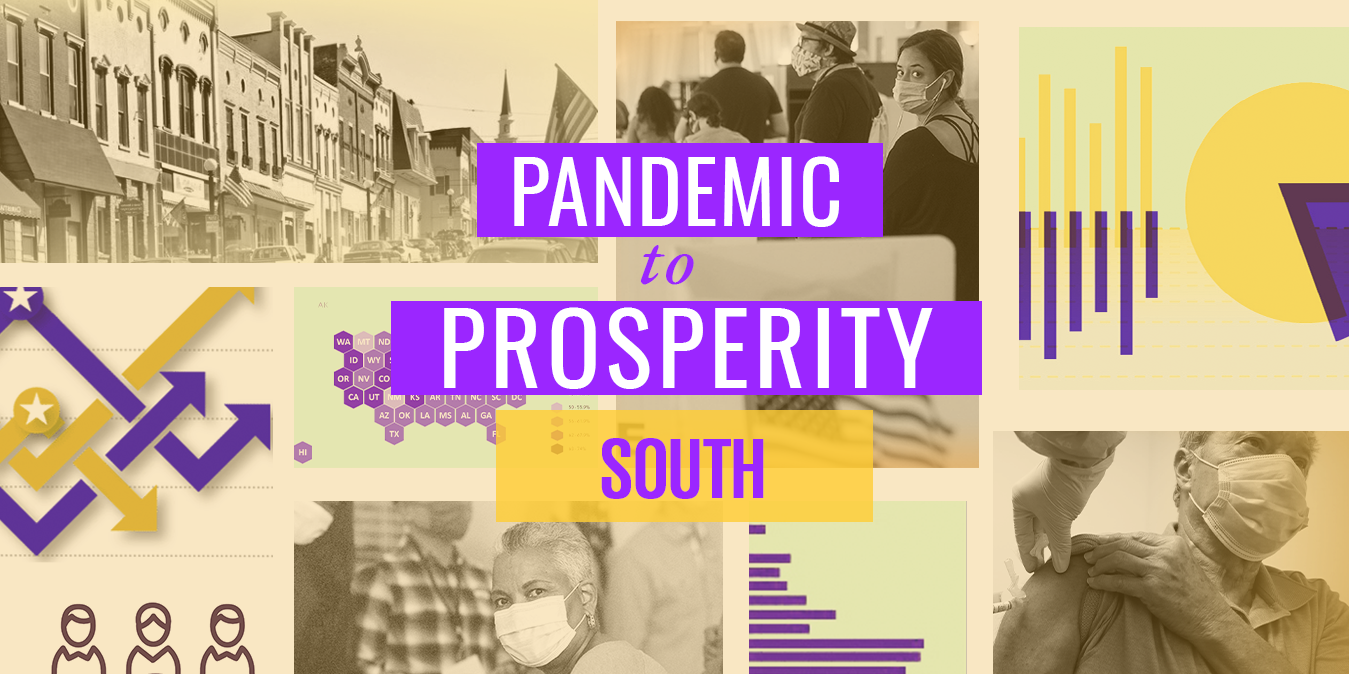Tomorrow marks three years after Covid was first discovered on U.S. soil — it’s imperative that we look back on its effects and plan a path forward toward recovery. Today, we’re releasing our latest Pandemic to Prosperity: South report, a timely and comprehensive data overview of the Covid-related impacts on Southerners’ lives and livelihoods, governments, civic institutions, and overall well-being.
As disasters do, Covid has accelerated many pre-existing trends. In this rapidly changing context, leaders must be strategic with their investments. State and local governments prioritizing projects for the American Rescue Plan, the Bipartisan Infrastructure Law, and the Inflation Reduction Act can use these findings to target disparities that ultimately undermine community resilience. Some new key findings in the report can be found below.
- PREGNANCY-RELATED DEATHS: Pregnancy-related deaths spiked during the pandemic, with Black women 2.6 times more likely to die than white women in 2021. According to GAO estimates, 25 percent of pregnancy-related deaths that occurred in 2020 and 2021 listed Covid as a contributing cause of death. Experts have expressed the need for more research on the impact of Covid in pregnant people.
- WORKING-AGE DEATHS: Since 2010, working-age mortality rates have been increasing, largely due to drug overdoses, alcohol poisoning, suicide, homicide, and traffic accidents. In 2021, working-age death rates from “external causes” were 33% higher in Southern states than elsewhere in the U.S. Workers without paid sick leave experience greater financial stress, and subsequently are more likely to overdose on drugs and to commit suicide — researchers have found that paid sick leave reduces deaths from these “external causes,” yet 10 of 12 Southern states prohibit paid sick leave ordinances.
- RECTIFYING THE 2020 CENSUS: Improving the Census Bureau’s annual population estimates could mitigate issues in the 2020 Census, which undercounted people of color, the very young, and the population of 6 states. These miscounts leave some communities receiving less than their fair share of population-based funding which could go a long way toward Covid recovery. However, the estimates budget is currently down 20% since 2003, and staffing levels are down 33%.
- ELECTION DENIALISM: Despite there being no evidence of widespread fraud in the 2020 election and expert consensus that it was secure, in the current Congress, 48% of Southerners are represented by a 2020 election denier, as are 22% of non-Southerners. This continued misinformation can have a significant impact on public confidence in the political system. A 2022 survey found that 64% of Americans believe that U.S. democracy is in crisis and is at risk of failing.



